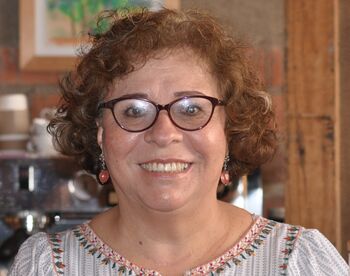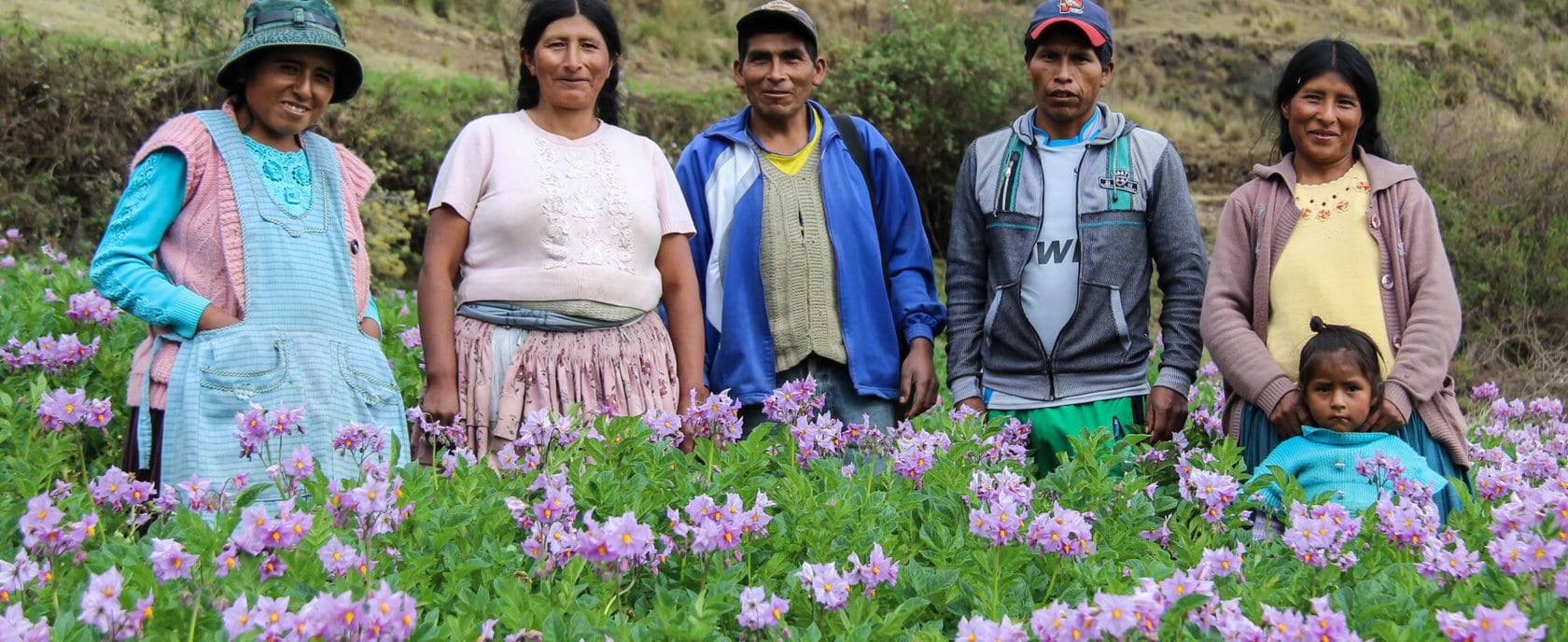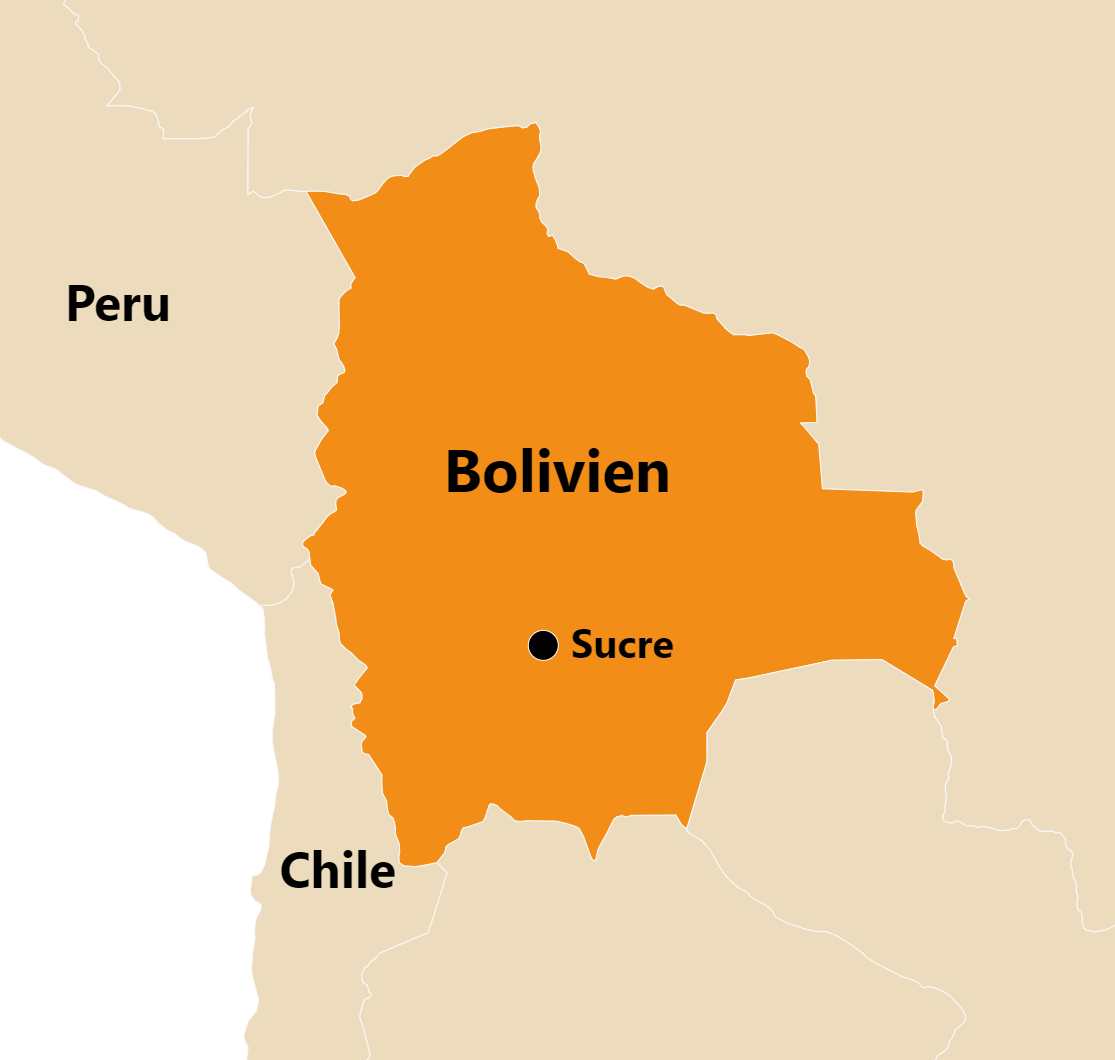
Jannet Villanueva
Coordinator Latin America (Bolivia and Peru)

Project Number: 420.1020
Humanity has never produced as much food as it does today and yet around 735 million people worldwide suffer from acute and chronic hunger (Welthungerhilfe, 2022). Another 2.3 billion are affected by malnutrition according to the World Food Organization (2021). The population in the Andes is particularly affected by malnutrition. Our partners work in the high mountains of Peru and Bolivia with over 4,500 Quechua- and Aymara-speaking smallholder households. Using organic farming methods, we aim to overcome nutritional deficiencies and anaemia in rural and urban contexts and secure the right to food. Thanks to agroecological farming, families can cultivate the soil and fields in harmony with nature and create new food systems with the help of local seeds, self-produced organic fertilizers and small greenhouses. These provide families with nutritious food all year round and make it possible to generate income. This type of agriculture also enables the families to bind climate-damaging greenhouse gases into the soil and to treat and live with nature carefully and respectfully in line with their spirituality. In this way, families from one of the most vulnerable and marginalized population groups in the Andes can develop their own resilience, health and autonomy.
In the strategic area of food sovereignty, we work with numerous small farmers in the greater Cusco area (PE), as well as in the catchment area of Lake Titicaca in Bolivia and Peru. In these areas there is a lack of a varied, balanced and healthy diet. But extreme weather events - such as drought and prolonged extreme cold leading to frost - are also increasing in intensity and frequency due to climate change. Thus, the right to food and health of many indigenous smallholder families is coming under pressure. Agro-industrial and state-sponsored cultivation of potatoes and quinoa, as well as smallholder families seeking adaptation strategies to climate change, are overstretching natural resources in an attempt to meet their food needs.
For some years now, smallholder households have been using more and more pesticides and artificial fertilizers, as well as industrial and genetically modified seeds. This leads to additional financial expenses for households, but also to an increasing dependence on agro-industry and to a significant loss of biodiversity and soil fertility. Women do the main work in providing for their children and families and do most of the subsistence work in the fields, while men and the younger generation migrate and work as migrant workers or miners. Despite their great achievements, women are disadvantaged in terms of land ownership and voice in village communities or at the communal level. Their participation in decision-making is very limited. The project work of our partners changes this. Due to their central role in the household, women are one of the main target groups of the project activities.
Bolivia
Peru
Farm families are trained and supported in the following areas:
Within the framework of the new partnerships (2020) with the Bolivian Network for Healthy Soils and Agroecological Cultivation (PNS) and the Peruvian Observatory for Agroecological Agriculture, Water and Food Sovereignty of the Centro Bartolomé de las Casas (CBC), further training events will be created for small farmers as well as interested parties from agricultural associations, academia, project staff of other non-profit organizations. In this way, new forms of knowledge transfer for agroecological agriculture in the Andean belt are created, which reach beyond the national borders of Bolivia and Peru to Ecuador, Colombia and Argentina. In addition, the traditional indigenous way of life and spirituality of the southern Andes is being socially valorized, and organic agriculture and sustainable water and soil management are being brought into the focus of authorities and universities.
The project activities of our partners reached the following target group in agroecological agriculture in 2022.
Bolivia
Peru
Due to drastic phases of drought and prolonged cold spells in the project regions in Bolivia and Peru, which can be attributed to climate change as well as to the weather phenomena La Niña and El Niño, Mission 21 is currently working together with its partner organizations in Peru and Bolivia to upgrade the projects in the area of food sovereignty to include the component of disaster prevention. This involves intensive work on infrastructure in the form of infiltration trenches, water retention basins and reforestation for long-term water harvesting.
These measures help to reduce the risks posed by periods of drought. They will be complemented over the next year by a long-term strategy of reforestation, which will help to moisten the soils.

11.8 million inhabitants (2021)
37.5% live below the poverty line (2021).
33 million inhabitants (2021)
30% live below poverty line (2021).
CHF 414,000
Mission 21
Protestant Mission Basel
PO Box 270
Missionsstrasse 21
4009 Basel, Switzerland
Tel.: +41 (0)61 260 21 20
info@mission-21.org
Donation account Switzerland:
IBAN: CH58 0900 0000 4072 6233 2
Tax exemption number:
CHE-105.706.527
Donation account Germany:
Savings Bank Lörrach-Rheinfelden
Swift BIC: SKLODE66
BLZ: 683 500 48
IBAN: DE39 6835 0048 0001 0323 33
Account No. : 1032333